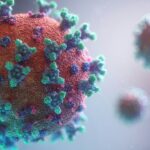Image by Ramiro Calace Montu from Pixabay
Teeth grinding, or bruxism, can be problematic for dental health, as well as a cause of TMJ dysfunction, and headaches. It’s also possible that there could be a connection between bruxism and tinnitus, as well.
In general, people seem to associate bruxism with one of two things: stress and anxiety, and parasites. There’s some evidence for both of these (far more for the former than the latter), though there are other possible causes as well. So far as I can tell, many of the causes involve neurotransmitter imbalances.
Causes of Bruxism
There’s always a question as to whether mental and emotional disorders are the “chicken or the egg” when it comes to neurotransmitter imbalances, but either way, there are usually neurotransmitter imbalances involved—either too low or too high serotonin, dopamine, norepinephrine, or epinephrine. This may be the reason that many medications used to treat depression, seizures, and ADHD can cause bruxism: these all generally affect one or more of those neurotransmitters.
Other causes of bruxism include alcohol and caffeine. Caffeine triggers release of adrenaline (norepinephrine and epinephrine) from the adrenals, so this makes sense. Anxiety and stress usually means acute adrenaline release, even if overall adrenaline levels are actually low, which they very often (nearly always, in my experience) are.
While alcohol specifically stimulates GABA receptors, like anything addictive, it also triggers dopamine release as well as serotonin release. My guess is that, since living organisms are an intricate system of feedback mechanisms, hours after alcohol, levels of these neurotransmitters will fall, possibly lower than they were to begin with.
Smoking is also associated with bruxism. While nicotine has its own receptors, smoking also stimulates the release of many other neurotransmitters, including serotonin, dopamine, norepinephrine, and epinephrine. I assume the same process occurs after smoking as after alcohol, with possibly a lower level of the associated neurotransmitters than were present in the first place.
As for parasites, there aren’t a lot of studies to support the association, but there are a few, mostly involving bruxism in children. As with nearly every subject, there are studies in both directions—this one does not support an association, while several others do, including this one and this one.
There is also an association between bruxism, upper respiratory infections and asthma in kids, as well.
I can’t find any studies to corroborate this, but I’ve seen bruxism show up as a manifestation of detoxification reactions with zeolite, though I’d imagine the same would be true of any detoxification agent that pulls toxins directly out of the cells). This generally indicates that we’re pulling toxins faster than the patient is able to eliminate them. It just means either slow down, open up the lymphatic system to help the toxins clear faster, or both.
The Upshot
Classically, bruxism is treated with mouth guards. Of course, the best approach is to treat the cause, if you can find it. Neurotransmitter testing and balancing might be helpful.






